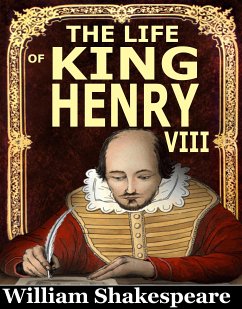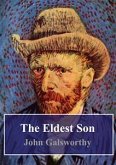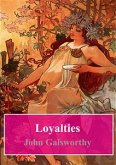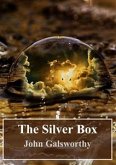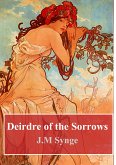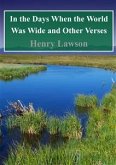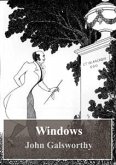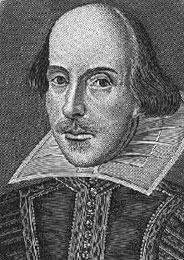THE LIFE OF KING HENRY VIII
William Shakespeare
PROLOGUE
I come no more to make you laugh: things now, That bear a weighty and a serious brow, Sad, high, and working, full of state and woe, Such noble scenes as draw the eye to flow, We now present. Those that can pity, here May, if they think it well, let fall a tear; The subject will deserve it. Such as give Their money out of hope they may believe, May here find truth too. Those that come to see Only a show or two, and so agree
The play may pass, if they be still and willing, I'll undertake may see away their shilling Richly in two short hours. Only they
That come to hear a merry bawdy play,
A noise of targets, or to see a fellow
In a long motley coat guarded with yellow, Will be deceived; for, gentle hearers, know, To rank our chosen truth with such a show As fool and fight is, beside forfeiting Our own brains, and the opinion that we bring, To make that only true we now intend,
Will leave us never an understanding friend.
Therefore, for goodness' sake, and as you are known The first and happiest hearers of the town, Be sad, as we would make ye: think ye see
The very persons of our noble story As they were living; think you see them great, And follow'd with the general throng and sweat Of thousand friends; then in a moment, see How soon this mightiness meets misery:
And, if you can be merry then, I'll say A man may weep upon his wedding-day.
ACT I
SCENE I. London. An ante-chamber in the palace.
Enter NORFOLK at one door; at the other, BUCKINGHAM and ABERGAVENNY
BUCKINGHAM
Good morrow, and well met. How have ye done Since last we saw in France?
NORFOLK
I thank your grace,
Healthful; and ever since a fresh admirer Of what I saw there.
BUCKINGHAM
An untimely ague
Stay'd me a prisoner in my chamber when Those suns of glory, those two lights of men, Met in the vale of Andren.
NORFOLK
'Twixt Guynes and Arde:
I was then present, saw them salute on horseback;
Beheld them, when they lighted, how they clung In their embracement, as they grew together; Which had they, what four throned ones could have weigh'd Such a compounded one?
BUCKINGHAM
All the whole time
I was my chamber's prisoner.
NORFOLK
Then you lost
The view of earthly glory: men might say, Till this time pomp was single, but now married To one above itself. Each following day Became the next day's master, till the last Made former wonders its. To-day the French, All clinquant, all in gold, like heathen gods, Shone down the English; and, to-morrow, they Made Britain India: every man that stood Show'd like a mine. Their dwarfish pages were As cherubins, all guilt: the madams too, Not used to toil, did almost sweat to bear The pride upon them, that their very labour Was to them as a painting: now this masque Was cried incomparable; and the ensuing night Made it a fool and beggar. The two kings, Equal in lustre, were now best, now worst, As presence did present them; him in eye, Still him in praise: and, being present both
William Shakespeare
PROLOGUE
I come no more to make you laugh: things now, That bear a weighty and a serious brow, Sad, high, and working, full of state and woe, Such noble scenes as draw the eye to flow, We now present. Those that can pity, here May, if they think it well, let fall a tear; The subject will deserve it. Such as give Their money out of hope they may believe, May here find truth too. Those that come to see Only a show or two, and so agree
The play may pass, if they be still and willing, I'll undertake may see away their shilling Richly in two short hours. Only they
That come to hear a merry bawdy play,
A noise of targets, or to see a fellow
In a long motley coat guarded with yellow, Will be deceived; for, gentle hearers, know, To rank our chosen truth with such a show As fool and fight is, beside forfeiting Our own brains, and the opinion that we bring, To make that only true we now intend,
Will leave us never an understanding friend.
Therefore, for goodness' sake, and as you are known The first and happiest hearers of the town, Be sad, as we would make ye: think ye see
The very persons of our noble story As they were living; think you see them great, And follow'd with the general throng and sweat Of thousand friends; then in a moment, see How soon this mightiness meets misery:
And, if you can be merry then, I'll say A man may weep upon his wedding-day.
ACT I
SCENE I. London. An ante-chamber in the palace.
Enter NORFOLK at one door; at the other, BUCKINGHAM and ABERGAVENNY
BUCKINGHAM
Good morrow, and well met. How have ye done Since last we saw in France?
NORFOLK
I thank your grace,
Healthful; and ever since a fresh admirer Of what I saw there.
BUCKINGHAM
An untimely ague
Stay'd me a prisoner in my chamber when Those suns of glory, those two lights of men, Met in the vale of Andren.
NORFOLK
'Twixt Guynes and Arde:
I was then present, saw them salute on horseback;
Beheld them, when they lighted, how they clung In their embracement, as they grew together; Which had they, what four throned ones could have weigh'd Such a compounded one?
BUCKINGHAM
All the whole time
I was my chamber's prisoner.
NORFOLK
Then you lost
The view of earthly glory: men might say, Till this time pomp was single, but now married To one above itself. Each following day Became the next day's master, till the last Made former wonders its. To-day the French, All clinquant, all in gold, like heathen gods, Shone down the English; and, to-morrow, they Made Britain India: every man that stood Show'd like a mine. Their dwarfish pages were As cherubins, all guilt: the madams too, Not used to toil, did almost sweat to bear The pride upon them, that their very labour Was to them as a painting: now this masque Was cried incomparable; and the ensuing night Made it a fool and beggar. The two kings, Equal in lustre, were now best, now worst, As presence did present them; him in eye, Still him in praise: and, being present both

